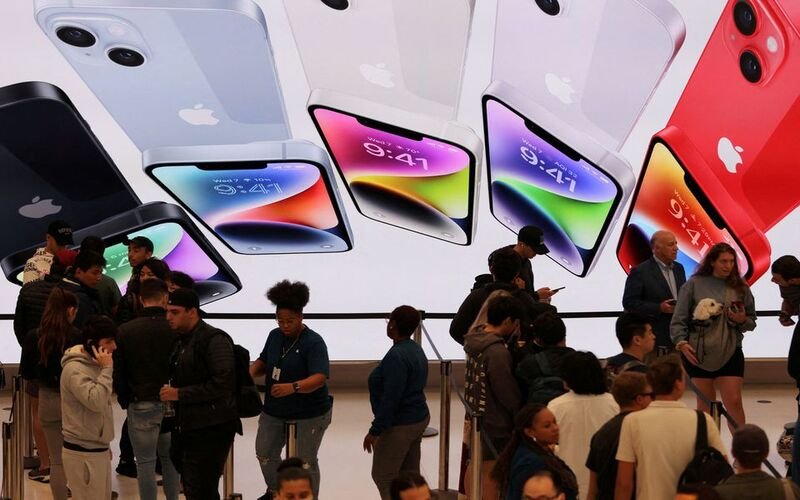On Wednesday, Apple’s iPhone 15 received mixed reviews in China, its third biggest market. Some internet users liked its speedier CPU and enhanced gameplay, while others preferred Huawei’s new smartphone.
China remains important for Apple, which announced its new iPhone range on Tuesday. Due to U.S. export limitations decimating Huawei Technologies’ (HWT.UL) smartphone business, the firm leads China’s premium smartphone market, although it has been criticized before the iPhone 15’s arrival.
Apple (AAPL.O) and its suppliers lost ground last week following rumors that Chinese government agencies and state enterprises were preventing personnel from using the phone; Huawei introduced a new smartphone with an advanced CPU in a recovery attempt.
As with previous iPhone releases, Wednesday’s iPhone 15 launch sparked internet debate. On Sept. 15, Alibaba’s (9988. HK) Tmall will sell the new phone; on Sept. 22, it will be in shops.
Three hundred eighty million Weibo views and 800,000 iPhone 15 posts, comments, and likes discussed the debut.
China’s mobile gamers praised the iPhone 15 Pro’s 3-nanometer technology and Apple’s promise to play console-quality games like “Resident Evil 4 Remake”.
After state media praised Huawei’s Mate 60 Pro launch earlier this month as a victory against U.S. sanctions, numerous social media users were wary of picking an American brand over a native one.
Sina’s social media poll asked users whether they would purchase the Mate 60 or iPhone 15. Sixty-one thousand voted for Huawei and 24,000 for Apple.
The Mate 60 Pro could make calls and send messages through satellite, whereas the iPhone 15 could only send texts, which sparked debate.
“The iPhone 15 can only send SOS messages via satellite, using last-generation technology already deployed in Huawei’s Mate 60, which supports full satellite calling,” one customer noted.
Analysts warned that China’s smartphone industry, like the global sector, is slumping, and the country’s faltering economy might hurt iPhone 15 sales.
Analysts said Apple’s third-party merchants’ 10% iPhone 14 Pro discounts in February aided sales but might hurt demand for the current series.
“This is not a good signal for the 15 series as some demands have been fulfilled before launch,” said Counterpoint research analyst Archie Zhang. “Before Huawei’s surprise launch, we expected Apple’s China Q3 and Q4 sales to be flat or down from last year.”
Apple faces challenges from Huawei and recent public sector developments, according to IDC researcher Will Wong.
He continued, “Sales (of the iPhone 15) are not going to be easy, especially since Chinese consumers are either cautious in spending or focused on leisure or travel.”
According to IDC, Huawei’s rivalry will steadily reduce Apple’s premium phone market share in China. In the first half of 2023, Apple had 67% of the market for phones above $600, followed by Huawei with 15.6%.






































Comment Template